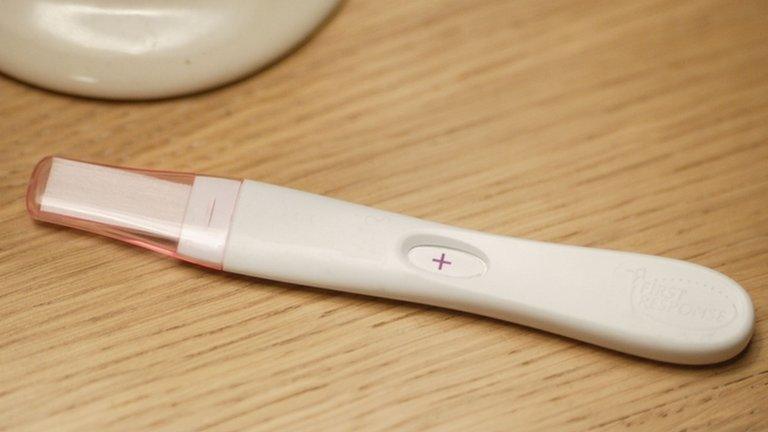Abortion: Is it time to revisit the UK's laws?
- Published
The BBC's Victoria Derbyshire meets young people in Croydon to hear their views on abortion
The BBC's Victoria Derbyshire asks if a law passed in 1967 allowing abortions in England, Scotland and Wales need updating? And she asks if Northern Ireland's laws reflect today's attitudes?
In the UK each year about 200,000 abortions are carried out.
Women in their teens, 20s, 30s and 40s choose to end unwanted pregnancies. They are a mixtures of single women, those living with partners, married and some are mothers already.
Opponents of abortion say the 1967 legislation that applies in England, Scotland and Wales was never intended to sanction so many procedures and the law is being abused.
In 98% of procedures carried out each year, mental health concerns are cited as the reason. The law states that a woman must face a greater risk to her mental or physical health by continuing with an unwanted pregnancy than if she had an abortion.
Two doctors need to sign a document to that effect.
'Immoral and illegal'
Yet critics point to a study from the Royal College of Psychiatrists in 2011 which reviewed the mental health risks of abortion.
It concluded that for women with unwanted pregnancies, rates of mental health problems were the same whether they had a termination or gave birth.
Dr Peter Saunders, chief executive of the Christian Medical Fellowship, said: "When a doctor knowingly and willingly puts his or her signature to a statutory document saying something for which there is not actually any medical evidence base, then I believe that is not only immoral, it is also illegal."
But Dr Clare Gerada, chairwoman of the Royal College of General Practitioners, said the current interpretation is realistic as there is no way to predict the impact of continuing a pregnancy on a woman's mental health.
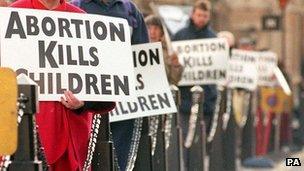
The law in England, Scotland and Wales requires two doctors to authorise an abortion
"What we have is what the woman tells us. It is not for me to judge her or be moralistic, it is for me to explore potential other options, but to take her at face value."
At the end of last year I met a woman we will call by the pseudonym of Maria. She is 39 and has had five abortions. Her first was at 15, her second at 16, and her third when she was still only 17.
"I was a child. I was a child in my head, in my thinking, so the idea of having a child was just ridiculous," she told me plaintively.
She knew it was easy for people to judge her, but asked that they did not, adding that unless they had walked in her shoes they could not comprehend her abusive and chaotic upbringing.
As an adolescent she ended up in relationships with older men, knowing nothing about contraception. Her most recent terminations were when she was married to her husband with whom she has children.
Indifferent attitude
Maria is from Croydon, one of the largest boroughs in London - and where some teenagers have had two abortions in a year.
It has one of the highest repeat abortion rates in the UK. Although the overall numbers there are coming down, among 13 to 19-year-olds, 50% of repeat abortions took place within 12 months. The question is why?
Croydon's demographics play a role - the area has a large population of young people and therefore the teenage pregnancy rate is correspondingly high. At a community centre in Croydon, I met a group of under 25s.
One girl suggested that because the abortion clinic was in the neighbouring borough any follow-up appointments to discuss contraception tended not to be kept because it was too far to travel and opening hours were not flexible.
Another teenager said some of her contemporaries felt they "had" to sleep with a new boyfriend to hang on to him and to suggest contraception might put him off. Croydon health bosses and community organisations say they are working to try to address those issues.
'Utterly undignified'
It is very different for women in another part of the UK.
In Northern Ireland, women cannot get an abortion, even in cases of rape. The legislation dates from 1861, and a woman only has access to abortion services if her life is at risk.
For women with an unwanted pregnancy, it means they either have to travel to England for a private procedure or break the law by taking abortion pills - knowing that if they are caught they could be charged with murder.
In Belfast I met a woman we will call Sarah, in her late 30s and happily married with children.
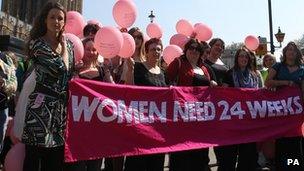
There have been calls to lower the abortion limit in England, Scotland and Wales to 20 weeks from 24
Sarah discovered she was pregnant despite being on the contraceptive pill. She and her husband decided they simply could not bring another child into their lives because they could not afford it and the time just was not right.
She bought abortion pills over the internet from a reputable website, knowing that she was risking a prison sentence: "I got to 37 without ever breaking the law and it makes you feel utterly undignified, to have to worry about every step of the way, to worry about whether the postman knew. It is not something I would ever want to go through again."
There is little political will at Stormont to extend the 1967 Abortion Act to Northern Ireland and a recent opening of a private abortion clinic in Belfast has stirred up emotions on both sides of the debate.
Nor is there political will at Westminster to revisit the way the 1967 legislation operates in England, Scotland and Wales.
What we are left with are two laws governing abortion in the UK. Is it time for a debate about consistency?
Panorama: The Great Abortion Divide, BBC One, Monday, 4 February at 20:30 GMT and then available in the UK on the BBC iPlayer.
- Published10 January 2013
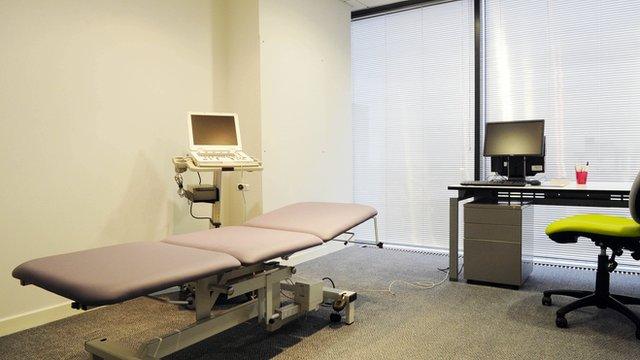
- Published22 October 2019
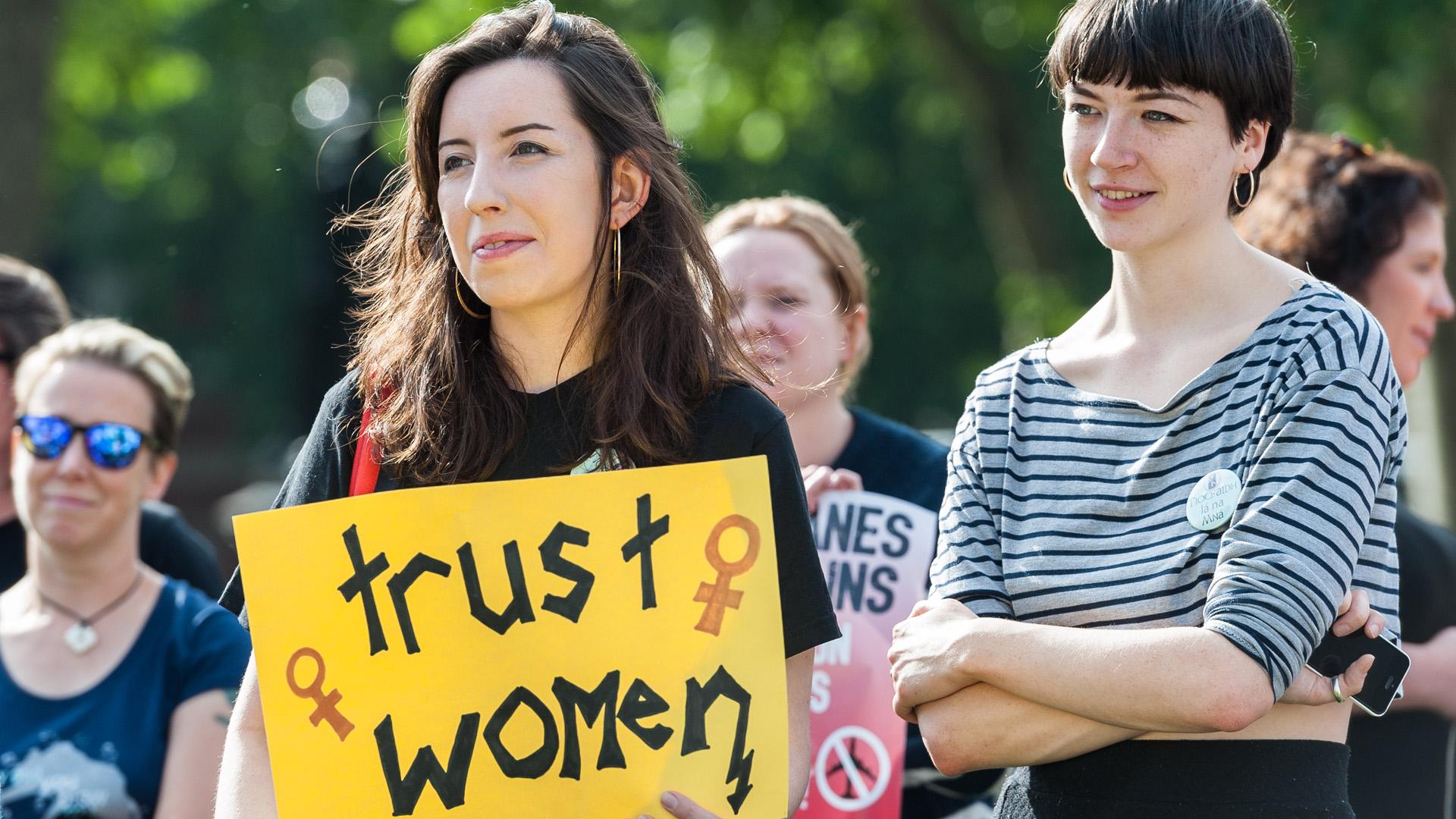
- Published11 October 2012
